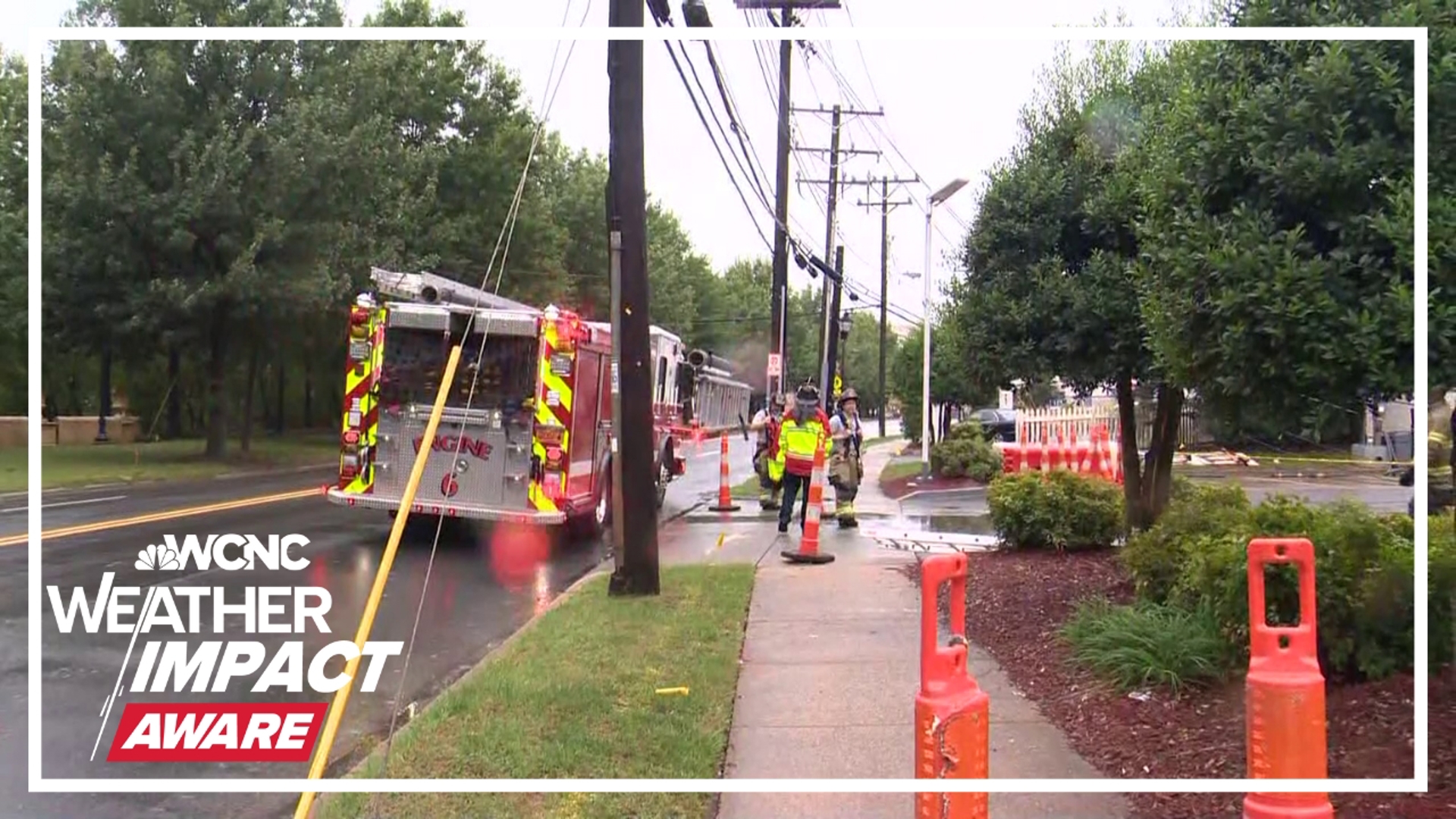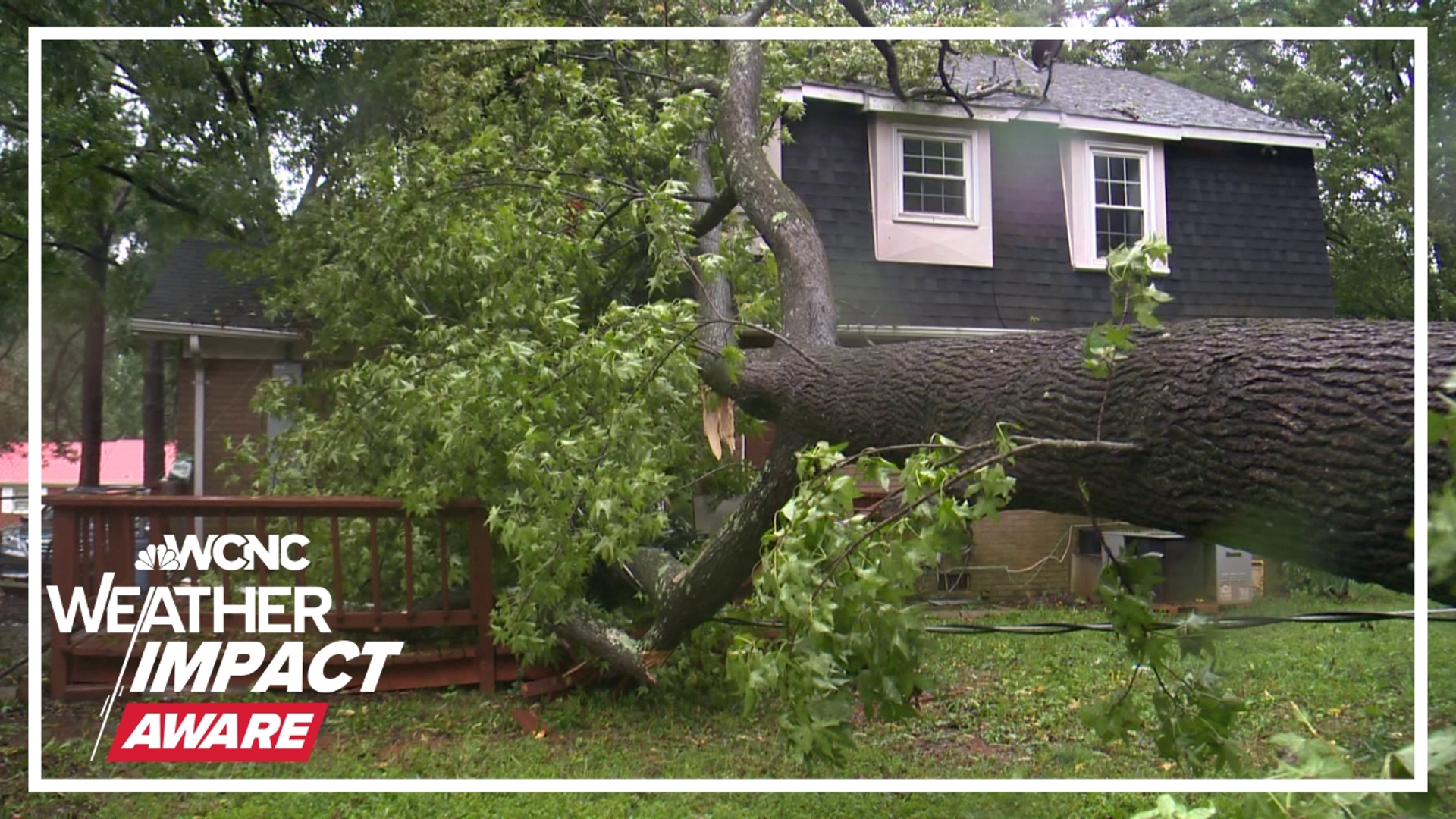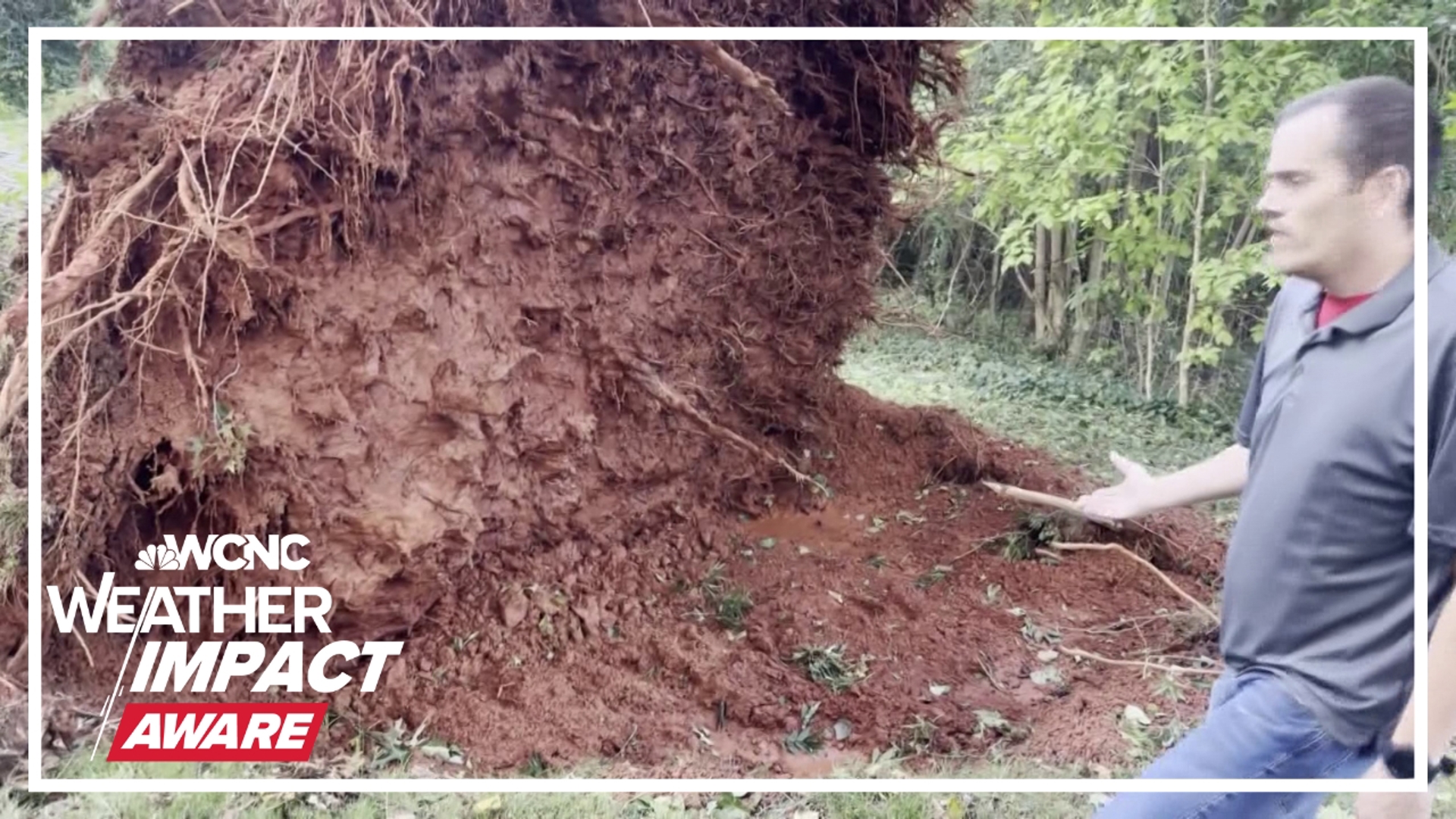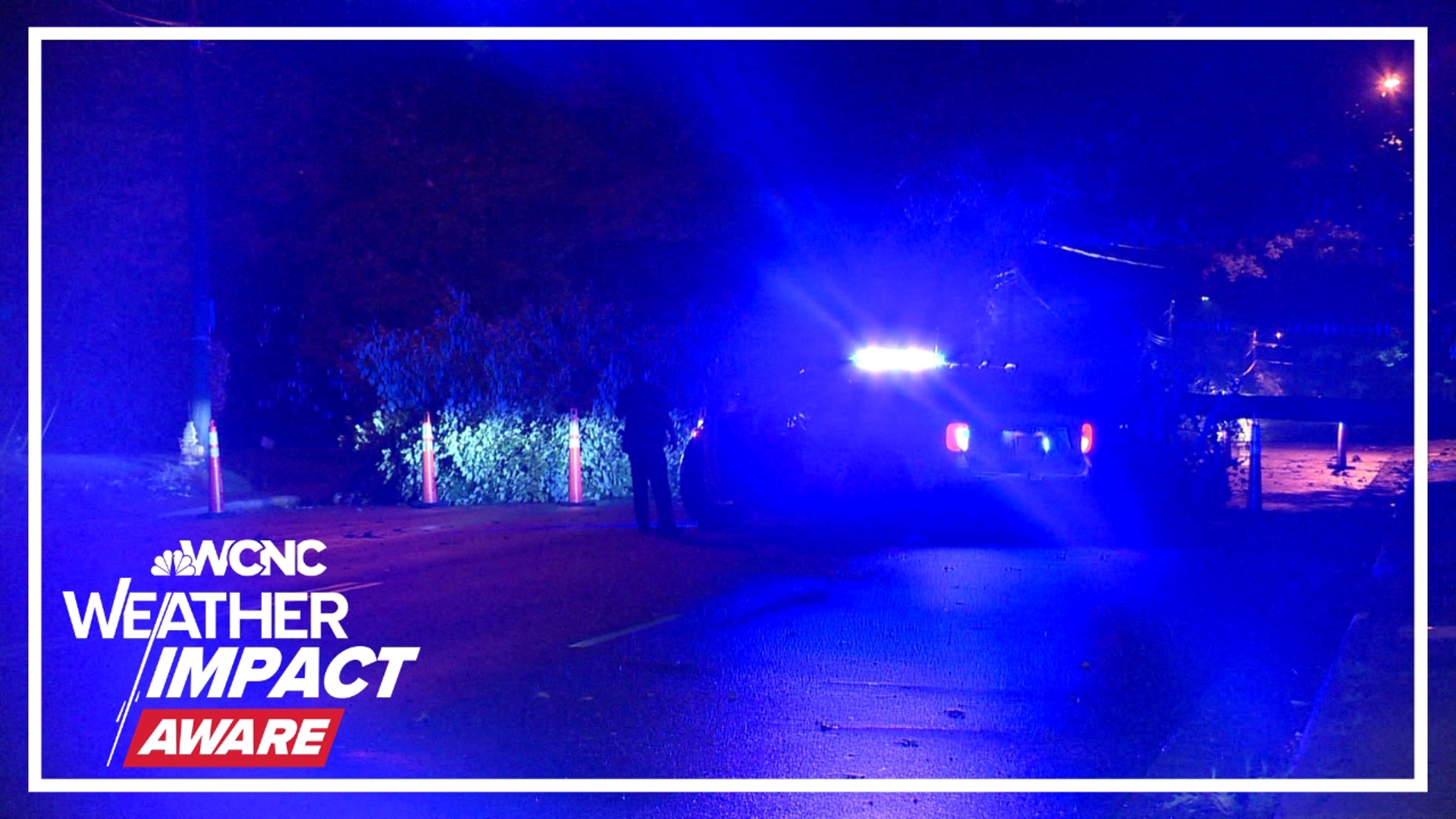CHARLOTTE, N.C. — Hurricane Helene made landfall around 11:10 p.m. Thursday about 10 miles east of Perry, Florida, as a Category 4 major hurricane with sustained winds at 140 mph.
Helene was downgraded to a tropical storm at 5 a.m. Friday, but the impacts will remain significant for the Carolinas with heavy rain, damaging winds and life-threatening flooding in many areas.
LIVE RADAR: Tracking Helene, impacts on the Carolinas
A Tornado Watch was in place for Anson, Cabarrus, Chester, Chesterfield, Gaston, Lancaster, Mecklenburg, Richmond, Rowan and Stanly counties, but that expired just before noon Friday.

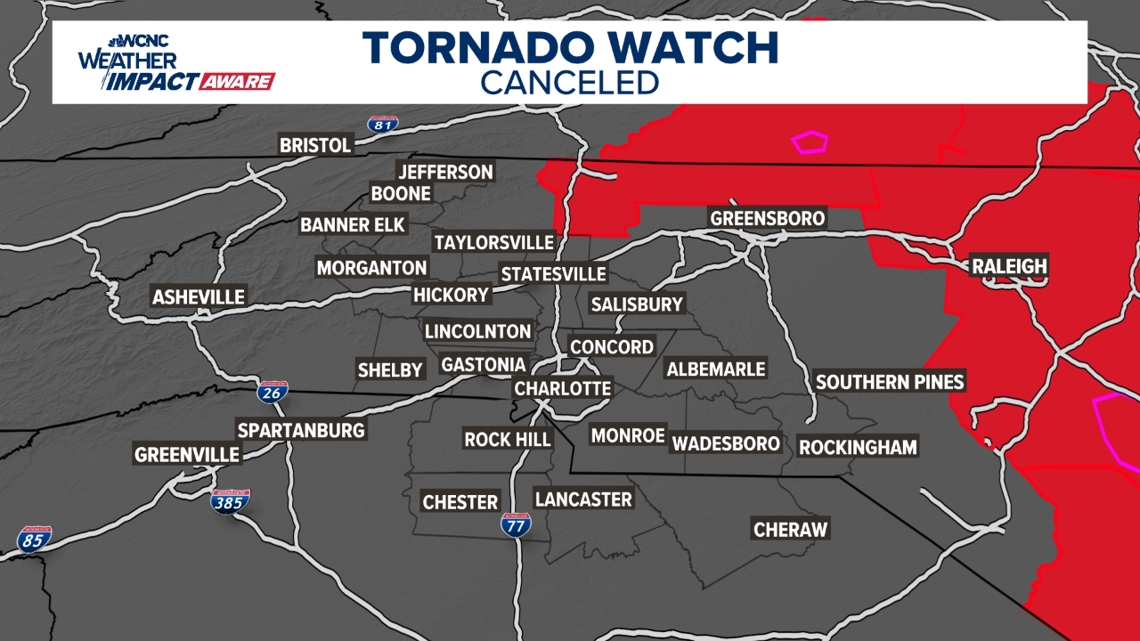
A Flash Flood Warning is in effect for Cabarrus, Mecklenburg and Union counties.
In western North Carolina, emergency crews worked to offer immediate aid. Gov. Roy Cooper said in a statement Saturday more than 200 people were saved from flood waters, and that North Carolina was getting a much-needed boost with three federal teams and more crews from 19 states.
“This is a historic and catastrophic storm for Western North Carolina and I’m grateful to first responders working right now to save lives and evacuate residents,” he said. “Efforts are also underway to get power and communications restored, and we’re bringing in needed supplies by air.”
How long will Charlotte see impacts?
Impacts from Helene become more intense as Friday morning progresses. The flash flooding risk, severe storms and high winds through at least midday Friday before conditions slowly improve.

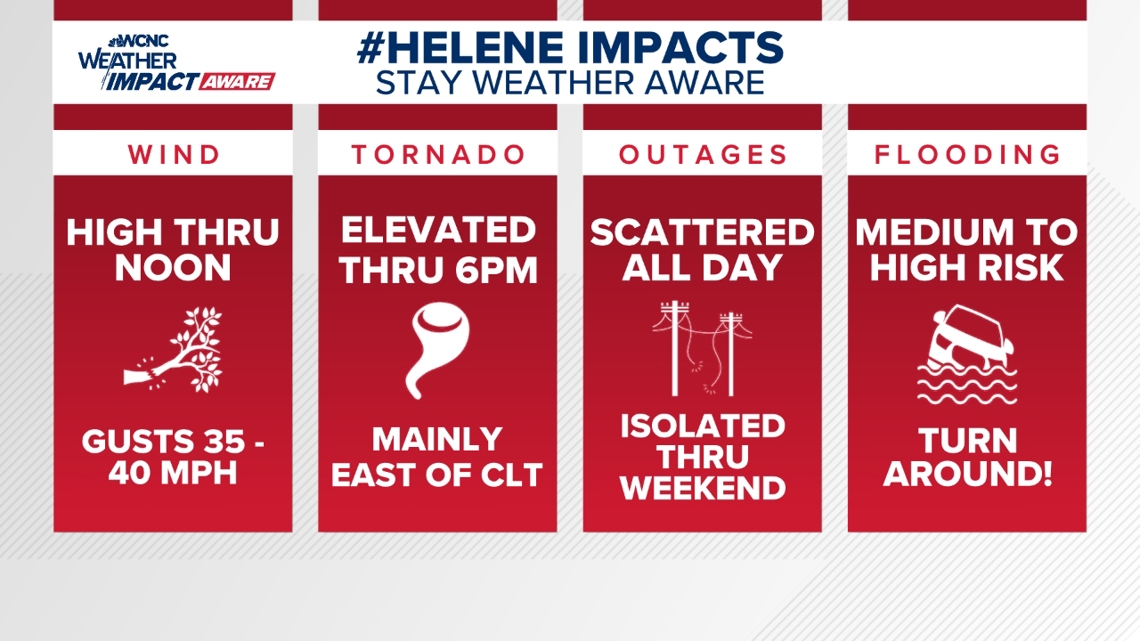
Tropical Storm Watches and warnings are in place, including most of our viewing area. A Tropical Storm Warning is in effect for Mecklenburg, Union, York, Chester, Gaston, Lincoln, Catawba, Cleveland, Burke, Caldwell and Avery counties. Impacted cities and towns include Banner Elk, Shelby, Lenoir, Morganton, Hickory, Newton, Gastonia, Charlotte, Rock Hill, Fort Mill, Chester, Lincolnton, Monroe, Huntersville, Matthews, and Cheraw.
A Flash Flood Warning is in effect for Cabarrus, Mecklenburg and Union counties. That warning is in effect until 10 a.m. Friday.
Another issue is the lack of cellular service in the area. Gov. Cooper's statement acknowledges that service is spotty in areas west of I-77 because of infrastructure damage. Telecommunications companies have activated disaster roaming for cell phones to access any network available.
29 counties and 52 cities are in states of emergency, in addition to a statewide declaration. About 418 state-maintained roads remained closed.
The impacts of Helene have forced Appalachian State University to close both its Boone and Hickory campuses through Friday, Oct. 4., with classes totally canceled. No residence halls are structurally compromised, and several buildings are still open for students. However, dangerous areas on the Boone campus will be roped off for safety.
Students are advised to take shorter showers, only run washing machines and dishwashers when full, and to use dishpans for washing and rinsing dishes.
Non-mandatory employees, including faculty, are advised not to come to campus.
At least two rescues involving trees slamming into houses were reported Friday. One of them was in Gastonia. Joshua Drum told WCNC Charlotte he had a major awakening when it happened.
"I was asleep in my room," he said. "It woke me up out of bed and everyone was freaking out. I had to calm them down."
Drum pointed out the size of the tree.
"It shook the ground. It was so big," he said.
Crews in York County worked late Friday night to rescue horses in need. The York County Sheriff's Office shared a video of crews guiding 11 horses trapped in flood water off River Lane, near the Catawba area.
What you need to know to stay safe
In the event of a severe storm, stay Weather Aware by:
- Seeking shelters indoors away from lightning and gusty winds
- Having your weather radio on hand and your safe place picked out
- Pack essentials, including medications and pet supplies, in case you have to evacuate quickly
- Watching for flooded creeks and streams
- If you encounter a flooded roadway: turn around, don't drown
- Monitoring radar for quick-moving thunderstorms that could disrupt outdoor plans
Late Thursday night, the Red Cross confirmed it had opened multiple shelters across the western North Carolina region, including one shelter in Charlotte. Anyone who needs assistance can visit the Tuckaseegee Recreation Center, located at 4820 Tuckaseegee Road.

